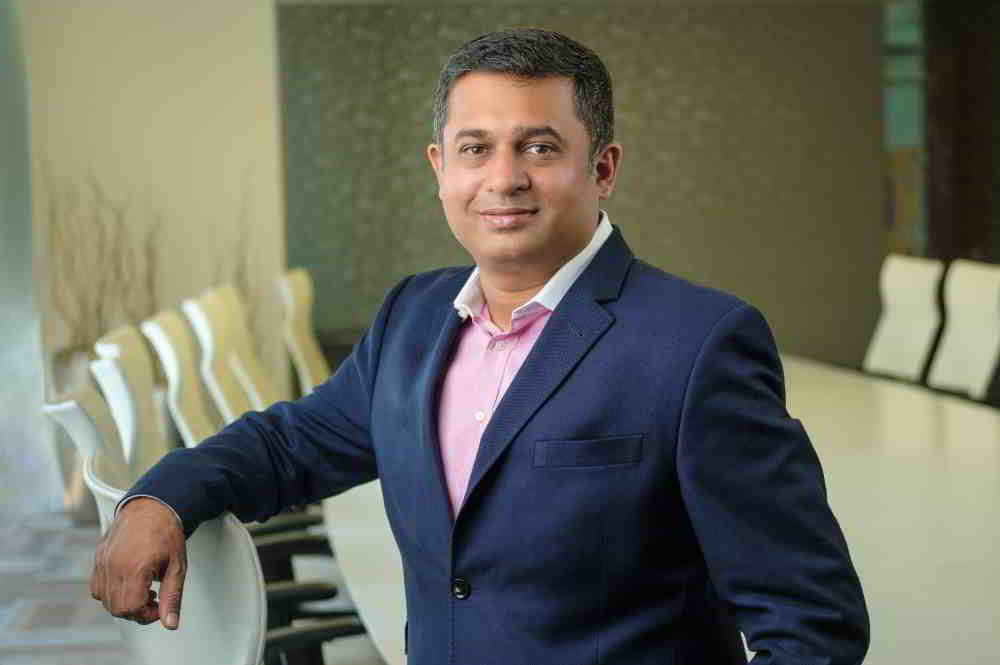Making the right decisions at the right time has always been an imperative for business success. Business leaders rely too much on ‘gut-feel’ and experience to make these decisions which may not lead to the right outcomes, says Srikanth Velamakanni, Co-founder, Group Chief Executive & Executive Vice-Chairman, Fractal Analytics.
Making the right decisions at the right time has always been an imperative for business success. Business leaders rely too much on ‘gut-feel’ and experience to make these decisions which may not lead to the right outcomes, says Srikanth Velamakanni, Co-founder, Group Chief Executive & Executive Vice-Chairman, Fractal Analytics.
He talks about artificial intelligence and algorithms coming into decision support systems and how these can reduce the dependence on human judgement, and yet be highly accurate.
Srikanth and the team at Fractal Analytics help companies leverage analytics, AI & deep learning to transform the way they make strategic, tactical and operational decisions. He is responsible for overall growth of the Fractal businesses, which include the core business of providing analytics services to Fortune 500 companies, along with Fractal’s AI based product businesses – Customer Genomics & Trial Run, Cuddle.ai and Qure.ai.
In 2016, Fractal Analytics was designated as one of the great places to work by the Great Place to Work Institute. Though most of its employees are based in India, it has offices in the US, UK, Canada, Singapore, Australia, Ukraine and other countries.
Excerpts from the hour-long interview:
BW: How are businesses making decisions today? To what extent is it being driven by decision support systems and analytics?
Srikanth Velamakanni: Individuals and enterprises make hundreds and thousands of decisions every day. Most of these are small decisions. The decisions get better with experience and age. But if you bring in data, you can actually accelerate those decisions. Data can improve the quality of the decisions.
Our research says that roughly 60 per cent of decisions are today driven by gut, intuition and experience. Another 30 – 35 per cent are driven by data and analytics, but human beings make those decisions (guided by data). Just 5 per cent of decisions are algorithmic. In the next 10 years the gut-driven, experiential decisions to drop to a small number, like 10 per cent. We expect 10 percent of the decisions to be purely intuition driven and the rest to be data driven or purely algorithmic driven. We are shaping that world.
AI will actually do all those things that looked impossible from an automation standpoint.
BW: How do you see the level of automation changing? How will AI change this?
Srikanth Velamakanni: The face of AI today is automation. Traditional automation has been simple and rule-based. It mimics human actions. In the last three years, a totally different type of automation began to happen. There has been intelligence and AI coming into automation to make the right decisions at the right time. It’s about fluid intelligence. With AI, things can be done much better than humans.
Our mission is to power every human decision in the enterprise. We believe that all human decisions in the enterprise can be better if we bring in data, AI and software into the decision. That’s our mission.
BW: What’s the differentiator for Fractal Analytics? What is the value proposition that you offer?
Srikanth Velamakanni: We need to improve the quality, speed and execution of decisions. By quality we mean accuracy of decisions. To do that, we have to bring in three key things: solid data, better techniques to analyse the data, and thirdly, we need to bring in behavioural sciences.
Data is extraordinarily powerful, so you need to have more data, better data and all kinds of data to make a difference. Take the case of Google Maps vs Apple Maps or Google vs Bing. In both cases, Google has a significant advantage because it has better data and more data.
We need better and more sophisticated techniques (for analysis) than the current statistical techniques. We need AI which is real-time and learning oriented. We need techniques like deep learning and machine learning.
Thirdly, we need to make human beings act differently. If people continue to do things the old way then organisations won’t improve. For that we need to bring in behavioural sciences – the understanding of human behaviour.
Our differentiator is how we bring in data, AI and behavioural sciences to improve the quality, speed and execution of decisions.
BW: How do you classify the different types of decisions that people make?
Srikanth Velamakanni: We divide the realm of all decisions that people make into strategic, tactical and operational.
Strategic decisions are the one-off decisions. You don’t do these every day. For instance, acquiring a company. We may do our due diligence but we have limited data or experience to know whether it is the right decision. You can improve the quality of strategic decisions if you have a solid process. But you will never know the outcomes of strategic decisions. You need to bring in more data and better data for these decisions – and support the decision to some extent.
Tactical decisions are made daily. These could be small or big decisions. Doing a performance appraisals or deciding the place for your next vacation, are tactical decisions.
Operational decisions are high velocity decisions. For instance, deciding how much raw material to order or how much to manufacture today. You make tactical decisions when you drive. You are making a number of decisions, although each has a low impact.
Tactical decisions are slower than Operational decisions.
BW: How do your solutions help improve the quality of these decisions?
Srikanth Velamakanni: We try to bring in solid data and push the right insights to customers or enterprise users. For instance, we have a solution called Cuddle. It is a disruptive BI offering. The traditional BI offerings are old school. AI should already know who you are (and your business). It should just give organisations what they already need to know. What if you have a personal analyst that tells you exactly what you need to know? This is what Cuddle does – it supports Tactical decisions. It runs as an app on your phone too. You get minute-by-minute updates on the performance of your business – or insights to any trends you track.
For Operational decisions, we have a number of solutions. For instance, one AI solution can diagnose and understand medical images. It produces a report after analysing these images. It takes years to train a radiologist to do this. But you can have an algorithm do the same thing – it can also keep learning. For instance, it will look at a chest x-ray and give a comprehensive report of all ailments in the chest. Imagine what you can achieve with a million such algorithms!
Our Trial Run product helps organisations make better decisions. It helps companies to experiment at a smaller scale and learn from their decisions.
Customer Genomics is a product that helps organisations personalise at scale. You can personalise the interactions with customers. It understands the customer in great detail and does customer profiling.









